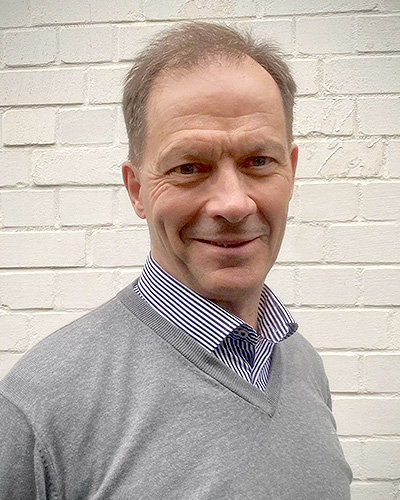
Circa is a renewable chemicals company with the scalable technology to produce unique and highly valuable bio-based chemicals. Our Furacell™ production process takes abundant waste biomass and makes a platform molecule, levoglucosenone (LGO). From this versatile building block, multiple sustainable bio-based chemicals have been developed to replace unsustainable fossil-based chemicals in a wide range of applications, including our bio-based solvent Cyrene™. Circa Group AS is incorporated in Norway with its head office in Oslo and listed on Euronext with the ticker code CIRCA.
Regarding the investment in France, what state are you in now?
We are developing our first European plant, ReSolute, on the site of a former coal-fired power plant in North East France. We have received considerable support from the EU and from the French government, as well as various regional funds in France. We believe that our business aligns strongly with the current EU priorities regarding decarbonisation, sustainability and the circular economy.
We are waiting to receive the final environmental permit from the French authorities to start building. Construction will start later this year which also includes converting some existing buildings on the site. In the meantime, the development work continues. We feel confident that the due diligence already done by the EU and France confirms that our outputs are absolutely relevant to the growing demand for new innovative products to support the decarbonisation of industry and combat climate change.
What makes the Circa process particular?
First of all, it’s a patented process so it’s proprietary. And the other thing is that it’s the first large-scale production process for platform chemical levoglucosenone or LGO. As our former CEO Tony Duncan has said many times, producing LGO has been done in grams and litres, but we are going to produce tonnes. We will take LGO production from lab- and demo-scale to fully-fledged industrial production using our unique patented process.
The Circa process is scalable with a modular approach. You could have one or you could have several units, making it relatively straightforward and low-risk to scale up. You just have to choose the number of modules required for your need.
Our product uses a renewable, raw material – biomass – instead of using fossil fuels. From a sustainability perspective, we plan to use the biochar that is produced as a by-product of our process as an energy source for the process, reducing the amount of fossil fuels we will need to use.
As a society, if we want to make change to how products are made on a large enough scale to have an impact then we need those materials to be safer and more sustainable. Circa’s mission is to change chemistry for good so to us, safer and sustainable by design is really important.
As an engineer, I’m excited by Circa’s technology and development and I see the impact that substituting today’s harmful, fossil-based solvents for our green solvent Cyrene™ can have on human health and the environment. We have many other products in the pipeline too, derivatives from our platform chemical LGO, which can have a significant impact across a range of sectors.
In terms of the feedstock, currently you’re using wood-based residuals. Can you use other types of residuals?
Currently, we are using sawdust but we can use any biomass, including agricultural residues like rice straw or other wood-based biomass like wood chips. We use the cellulose which is part of the structure of all plants and we put it into our Furacell™ process to convert it into chemicals. It will depend on the natural resources that are readily-available to us in the locations for our next sites. We have signed MoU’s in Finland and Thailand to investigate the options in those regions.
Originally published by the World BioEconomy Forum